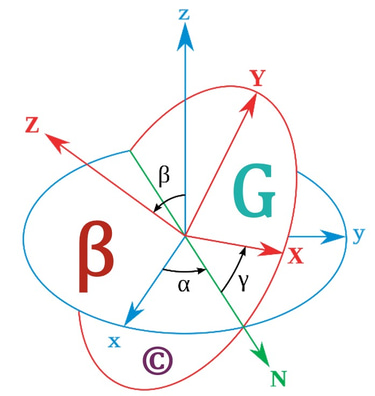The Invisible Lifeline: How Electricity Powers Every Medical Miracle"
Electricity is the unseen force driving modern healthcare. From powering life-saving medical equipment to enabling critical diagnostics and surgeries, it is the lifeline that keeps hospitals running. Without it, even the most skilled doctors would struggle to save lives. This blog explores the vital role of electricity in healthcare, the risks of power outages, and how electrical engineers ensure that hospitals remain powered, so doctors can continue to perform medical miracles every day.
ELECTRICAL ENGINEERINGPOWER SYSTEMSCRITICAL INFRASTRUCTURES
Engr. Benjamin V. Gonzales Jr.
2/16/20252 min read
Modern healthcare is a marvel of science and technology, but its success hinges on an often-overlooked foundation: electricity. From life-saving surgeries to critical diagnostics, electricity is the invisible lifeline that powers every aspect of modern medicine.
Imagine a hospital without power. Ventilators stop working, leaving patients unable to breathe. Monitors go dark, cutting off real-time data on vital signs. Surgical tools fall silent, halting procedures mid-operation. Even basic lighting and climate control systems fail, creating chaos in an environment where precision and sterility are paramount.
Electricity is not just a convenience in healthcare—it’s a necessity. It powers MRI and CT scanners, enabling accurate diagnoses. It keeps laboratory equipment running, ensuring timely test results. It maintains refrigeration for life-saving medications and vaccines. Without electricity, the entire healthcare system would grind to a halt, putting countless lives at risk.
Doctors and healthcare professionals rely on this invisible lifeline every day. Yet, it’s the work of electrical engineers that ensures hospitals have a reliable and efficient power supply. From designing backup generators to integrating renewable energy solutions, their expertise keeps the lights on and the machines running.
In a world where healthcare and technology are increasingly intertwined, the partnership between doctors and electrical engineers is more critical than ever. Together, they ensure that every medical miracle—from the simplest procedure to the most complex surgery—is possible.
Electricity may be invisible, but its impact on healthcare is undeniable. It’s the lifeline that keeps modern medicine alive, empowering doctors to save lives and shape the future of healthcare.
If there is no electricity in hospitals, it would severely impact the ability of doctors and healthcare professionals to perform their jobs effectively. Modern healthcare relies heavily on electrical power for a wide range of critical functions. Here are some key areas that would be affected:
Medical Equipment: Many life-saving medical devices and equipment require electricity to operate. This includes ventilators, heart monitors, dialysis machines, MRI and CT scanners, X-ray machines, and infusion pumps. Without power, these devices would cease to function, putting patients' lives at immediate risk.
Lighting: Proper lighting is essential for surgeries, examinations, and general hospital operations. Without electricity, hospitals would have to rely on natural light or emergency lighting, which may not be sufficient for critical procedures.
Climate Control: Hospitals need to maintain specific temperatures and humidity levels to ensure patient comfort and prevent the spread of infections. Heating, ventilation, and air conditioning (HVAC) systems require electricity to operate.
Sterilization and Sanitation: Autoclaves and other sterilization equipment used to sanitize surgical instruments and medical supplies require electricity. Without it, maintaining a sterile environment would be challenging, increasing the risk of infections.
Communication Systems: Hospitals rely on electronic communication systems for coordination among staff, patient records, and emergency response. Power outages can disrupt these systems, leading to miscommunication and delays in patient care.
Laboratory Services: Many diagnostic tests and laboratory analyses depend on electrically powered equipment. Without electricity, labs would be unable to process tests, delaying diagnoses and treatments.
Pharmacy Services: Refrigeration for medications and vaccines requires electricity. Power outages can compromise the efficacy of temperature-sensitive drugs.
Emergency Power: While hospitals typically have backup generators, these systems are not infallible and may have limited capacity. Prolonged power outages can exhaust backup power supplies, leading to a complete loss of electrical support.
In summary, without electricity, the ability of doctors and healthcare professionals to provide effective care would be severely compromised. Emergency power systems and disaster preparedness plans are critical to mitigate the impact of power outages, but they are not a complete solution. Ensuring a reliable and continuous power supply is essential for the functioning of hospitals and the safety of patients. This underscores the importance of the work done by electrical engineers in maintaining and improving power infrastructure.





